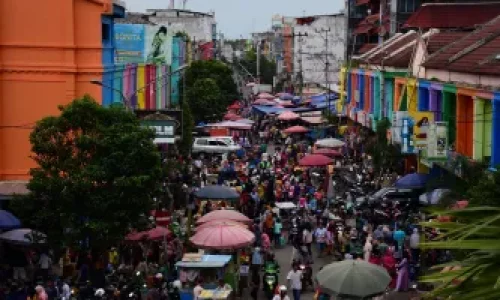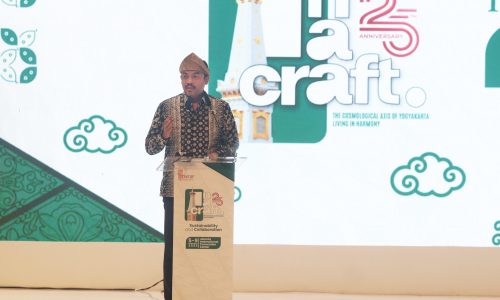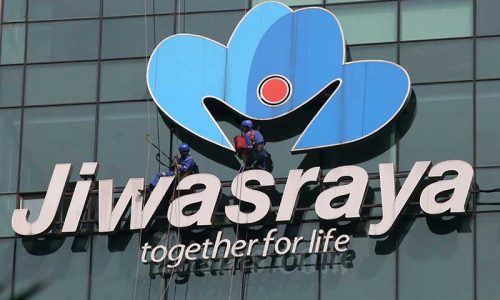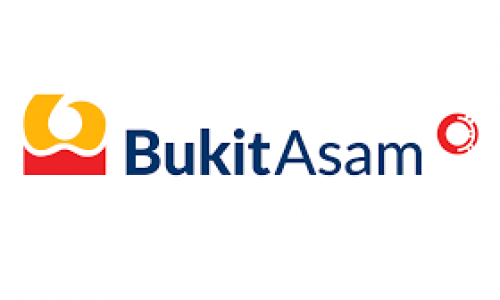A defense analyst says the Ministry of Defense’s plan to procure two Fast Missile Boats (KCR) from Turkiye as part of the measures taken by President Prabowo Subianto to set an example for domestic defense industry to improve the quality of its products.
“The ordered ships are designed to be longer [than Indonesia-made KCR] and equipped with a full combat system, ready to be equipped with missiles, which are planned to be purchased separately. This is expected to be an example of a high-quality KCR standard that can be imitated by domestic shipyards in the future,” Alman Helvas Ali, an analyst with security and defense consultancy firm PT Semar Sentinel, told Indonesia Business Post in an interview on Monday, November 4, 2024.
The purchase of these two ships has a contract value of US$200 million and is planned to use funding from foreign loans whose programs have been recorded in the budget book (blue book) since 2021.
The construction of the two new fast missile boats − frequently also identified as Fast Attack Craft (FAC) for their speed, agility and combat capability − symbolically began with the First Steel Cutting (FSC) of the two boats by Rear Admiral Retiono Kunto, an Expert Staff to the Indonesian Navy Chief of Staff, in a ceremony held at the Sefine Shipyard CNC Fabrication Workshop, Altinova, Yalova, Turkiye, on Wednesday, October 30, 2024.
Alman suspects that these ships were purchased directly from Turkiye, without involving State-owned shipbuilder PT PAL, as part of Prabowo Subianto’s direction.
“My guess is that President Prabowo wants to show the ideal quality of KCR, considering that KCR made by PT PAL is still considered underperforming. The 60-meter KCR boat made by PT PAL has some technicalproblems, including being overweight, which disrupts the boat’s stability, especially when operating in bad weather,” he said.
In view of high inflation, Turkiye’s low credit rating (BB-) according to the Fitch rating agency, and the difficulty to obtain low-interest loans in Turkiye, Alman said that the two KCR procurement will be financed by credit from Indonesian state-owned banks that have branches abroad, such as Bank Mandiri Cayman Island or BNI Singapore, with an interest rate of 1.5-2 percent.
He expressed hope that the Ministry of Defense under the leadership of Sjafrie Sjamsoeddin can continue this program by issuing the latest blue book in February next year as it will confirm the budget for various advanced defense programs, including the purchase of frigates and U.S.-made F-15 jetfighters.
In the frigate program, there are three options available among NATO weapons-producing countries, namely France (Frégate de Défense et d’Intervention), Italy (between FREMM or Pattugliatore Polivalente d’Altura), and Turkiye (Istanbul class).
Shortcut
Alman said strengthening the Indonesian navy is urgent, considering that many warships are obsolete, such as the KRI Fatahillah-class ship that no longer meets combat standards.
“Prabowo’s policy as Defense Minister was to accelerate ship procurement through shortcuts, one of which by bringing in Italian frigates that were initially allocated for the Italian Navy,” he cited.
He believed that Sjafrie could follow the suit if he needed warships in a short time, getting frigates that are being built for other countries to Indonesia.
He predicted that under Sjafrie, policy for defense procurement will remain directed at NATO countries, avoiding the risk of conflicts of interest, especially with countries like China that are involved in territorial disputes with Indonesia in the Exclusive Economic Zone (EEZ).
Alman said Indonesia should be cautious in accepting offers of various weapons systems from Turkiye, especially considering that many of these systems have not been proven in real military operations. In recent years, Turkey has been aggressively offering various types of weapons to Indonesia, with Indonesia often positioned as the “first export customer” or first buyer for Turkish defense equipment exports.
Since 2010, Indonesia’s experience as the first buyer of weapons exports from several other countries has often been marked by obstacles. By being the first buyer, Indonesia often functions as a “field laboratory,” namely a place for direct testing in real fields. This has oftenexposed Indonesia to technical and operational problems that arise due to products that are not yet fully combat proven.
“Being the first export customer does have its own risks. We must ensure that the defense equipment purchased has been tested well in field situations so that there are no technical obstacles that could endanger personnel and operations,” Alman said.
Experts have suggested that Indonesia pay attention to aspects of trials and product track records on the battlefield before deciding on a purchase, in order to ensure the quality and reliability of the weapons system.
This effort aims to reduce dependence on products that have not been fully tested, while maintaining national defense quality standards.









